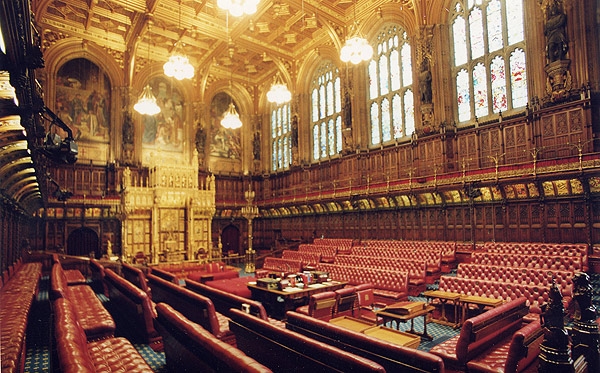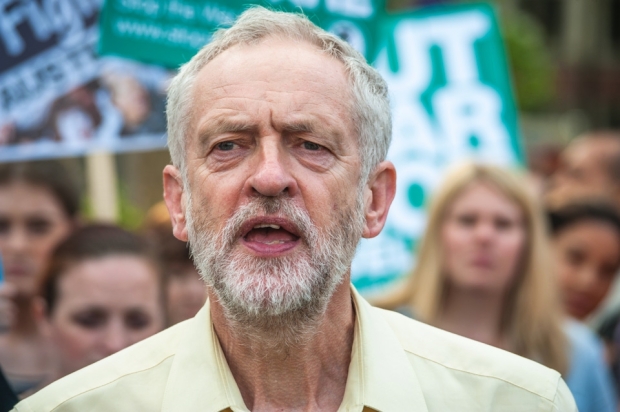Chris Napier
There are around four hundred actual seats in the House of Lords, yet as David Cameron hands out a batch of new peerages there are now in excess of 800 eligible members. This makes the House of Lords as the second largest parliamentary chamber in the world and the only upper house in a bicameral parliament which is larger than it’s respective lower house, and throws fuel on the fire of the enduring campaign to press for reform of the UK’s upper chamber.
I believe that the House of Lords is a bloated, undemocratic and expensive anachronism which attaches the government of the UK to an age of aristocratic privilege which belongs in the history books and acts as a block on the UK becoming a true democracy.
In this article, I intend to set out a blueprint of an institution to replace the House of Lords (or act as a second house to the Scottish parliament in the event of Scottish independence) which addresses the criticisms that the Lords is expensive, distant and undemocratic while performing a crucial role in acting as a check on the power of Westminster (or Holyrood) as well as further constitutional duties.
A New House
As a direct link to the UK’s feudal past, I believe that the House of Lords should be abolished with the building itself either converted into dormitories for MPs sitting in the Commons (removing the supposed need for ‘second homes’) and/or turned into a museum, which could generate income which could finance some of the costs of running parliament.
The new institution, which I will tentatively call a Senate as this is one of the most common names applied to an upper house around the world* would be a wholly new body, with new powers and a wholly new relationship with the UK parliament, reflecting the changed needs of the country in the 180 or so years since the current parliamentary balance was established.
* In suggesting the name of Senate, I acknowledge this might not be the best title due to the devolved Welsh assembly technically being called a Senate (or Senedd in Welsh) and the republican connotations of the word and widespread usage abroad may make the name distasteful to some.
Role
The House of Lords’ powers have been diminished over the years as it is only able to delay a parliamentary bill for a limited time and cannot interfere with a budget. With the Senate being elected and more directly accountable to the population, I feel it would be prudent to increase it’s powers to make it a meaningful balance to the House of Commons (or Holyrood in the case of an independent Scotland.)
However, the lower house would remain the more powerful house, responsible for initiating legislation and with government ministers expected to be drawn from the ranks of MPs/MSPs.
The role of the Senate would be to approve legislation, while sending unacceptable bills back to the House of Commons with recommendations for amendments. The Senate would also be able to propose legislation to be debated in the House of Commons and also to rule on constitutional* matters, being able to veto bills it deemed to be unconstitutional or against the interests of the country. The Senate would also be able to calla referendum on any issue they deemed to be suitably important and would act as a court of appeal on any issues of parliamentary discipline.
* Of course, this is dependent on there actually being a written constitution for the UK or Scotland, but I would argue that this would be a very desirable thing to have.
Candidacy
As party politics is one of the less appealing parts of the political landscape anywhere, with individual MPs often having more loyalty towards their party and it’s donors rather than their constituents, it would be a refreshing change for the upper house to be devoid of such divisions.
As such, prospective Senators would not be allowed to be a member of a political party or have been politically active (as an office bearer or candidate for a party) for at least a decade prior to their election. Of course, charity workers, union representatives etc. do not count as politically active.
Furthermore, to avoid the potential bias of big business or individually wealthy candidates, prospective Senators would have a strict campaign budget, but would receive a taxpayer funded freepost similar to that which is given to prospective MPs, as well as mandated coverage on regional television via the BBC.
In my mind, the Senate would ideally be composed of people with experience in a wide variety of real world roles, with academics, charity workers, businesspeople and so on all represented but I can’t think of a way to proactively make this happen.
Election
The Senate would be wholly elected with candidates standing in a single electoral region and the top candidates would be elected via single transferable vote (STV.)
The specifics of electoral regions etc. would depend on whether we were talking about a UK or Scottish Senate, so I’ll deal with each example differently.
For the UK, I would use the electoral regions and number of representatives as used for the European elections, giving a total of 73 senators elected from the twelve regions.
For Scotland, I would use the eight electoral regions used for the Scottish parliament elections, each returning three representatives, giving a total of twenty four senators.
Senators would serve for a four year term and being barred from serving more than three terms, with elections offset from the main parliamentary elections to avoid confusion between the elections.
Location
The expense of building a wholly new Senate building and the inevitable bunfight about where to situate it are evident problems with the creation of a new institution. However, this can be countered in a way which also makes the Senate more accessible, inclusive and representative of the nation. Send it on tour.
The Senate would exist as a legislative body composed of its members, not tied to any particular building. The Senate would meet in locations across the country, rotating between electoral regions on a monthly basis, thereby ensuring that the Senate is in your part of the country at least one month a year, with the public able to view debates and so on.
Of course, the expenses accrued in travel and accommodation for senators and staff (both senator’s aides and the administrative staff of the institution) would be considerable, but given the restricted number of senators, this is still likely to be less than the running expenses of the House of Lords as it stands.
In practical terms, this means that the Senate would meet two days a week, while Senators would be expected to work in their home regions three days a week, holding surgeries, meeting constituents and working from their home office.
Remuneration
Being a full-time job which is intended to attract ordinary people, rather than simply the wealthy or a professional politician, I propose that the wage for Senators be fixed as twice the average UK wage – at the moment amounting to a wage of around £55’000. This wage is sufficient to reflect the level of responsibility implicit in the role and discourage corruption (as power without proportional remuneration will inevitably lead to corruption) while not being so generous as to attract those who could earn more as a CEO.
Senators would also receive expenses for travel between their residence and where senate is being held, plus an allowance for an office and staff.
Senators would be barred from holding any other business interest while in office* or from accepting any ‘figurehead’ roles with companies after their term. If they insist on profiteering, they can write a book…
* If they are business owners when elected, they would be allowed to continue as owner but only in a non-executive capacity, handing the running of the company over for the duration.
Accountability
Any senator or prospective Senator found to be claiming fraudulent expenses, favouring business interests or similar will be immediately stripped of their position and a by-election process started.
There would also be a recall procedure similar to the proposed Recall of MPs act, whereby electors would be able to recall a Senator if a sufficient number lodged their name against the motion to do so.
—
Obviously, many of these suggestions are in very broad strokes and reflect my personal preferences but the purpose of the article is largely to show that the way things are and have been done in British (or Scottish) politics does not have to endure.
By challenging the institutions and forms of our governance and having an open debate about what kind of country we want to live in and how we wish to be governed, positive change can move from seeming an impossible dream to something which seems logical, natural and inevitable.






